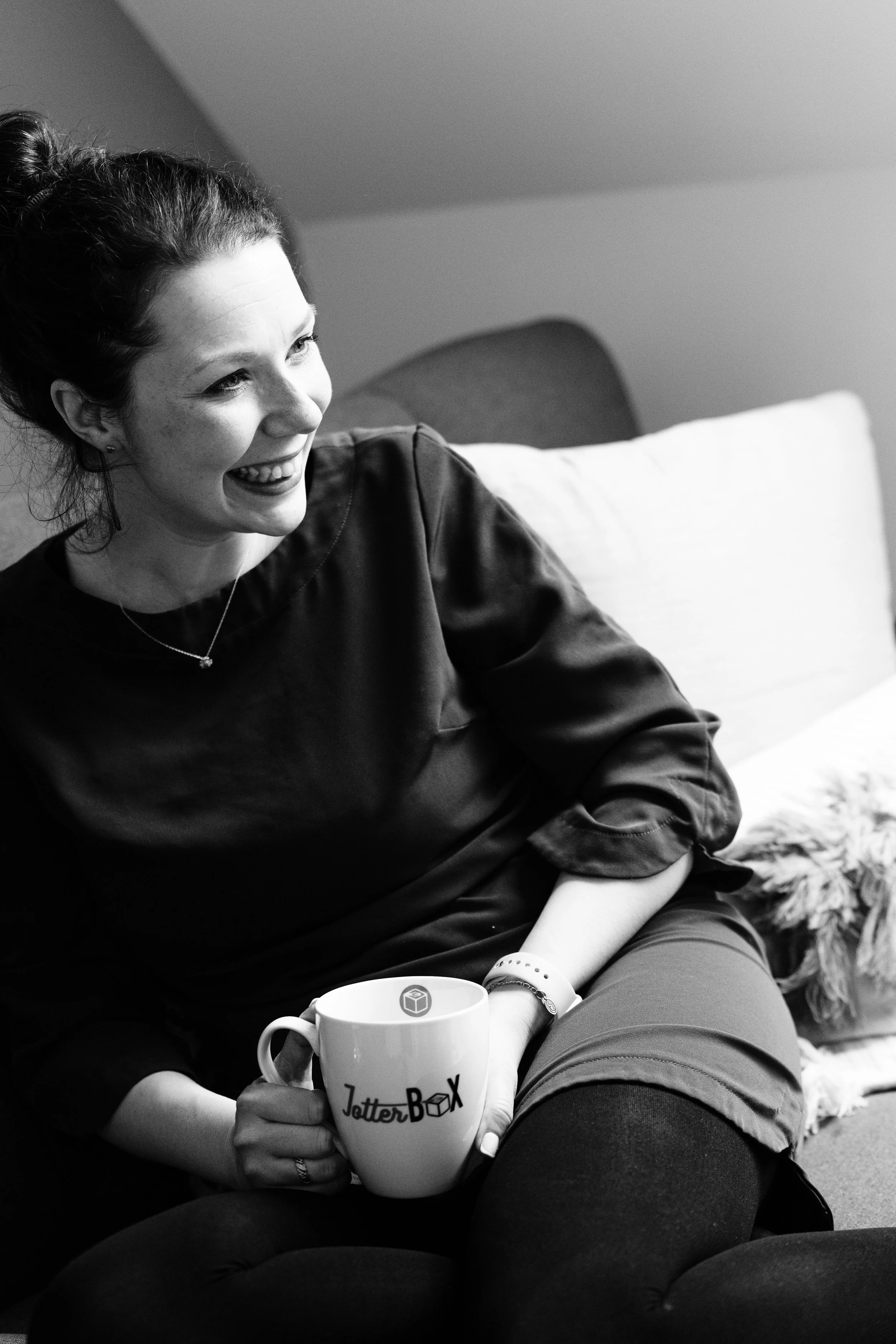How Jotterbox came to be - Discovering the value of a multi-faceted skillset
(…and why I’m no longer hiding my acting background.)
I’m Stef. Founder of Jotterbox Support, provider of creative VA services and…trained actor.
There was a time when I kept the latter part under my hat because I thought that it would somehow negatively impact my corporate career. Would I not be taken seriously as a young professional (at the time an Executive Assistant, later a Learning & Development specialist)? Would I be judged as unsuccessful? Was I about to jump ship once my big break arrived? Well, it turns out that none of these were remotely true (especially the big break part). The biggest judge, it turns out, was myself and now, with wisdom on my side, I can see just how much value all the experiences have had.
So how does being a trained actor make me better at what I do now?
Interpersonal skills and confident communication
By definition, acting is to behave so as to appear to be. Whilst I once invested my time in playing the part of another character, this inadvertently gave me the confidence to be myself. I was given the unique opportunity to study the mechanics of human interaction and the power of meaningful connection. Not only is this at the core of a good performance – an audience wants to be convinced by the performance they have paid to see – being a confident communicator is also key to success in life and business.
As humans, we have an innate desire for connection and for some confident communication comes easier than others. Somewhat encouraged by my parents, I joined a theatre school at the age of 11 in the hope that it would give adolescent me some self-assurance. Fast forward 20 odd years and I found myself in a room full of execs, leading an interview training workshop, with a lightbulb moment - the content I was delivering was directly linked to the interpersonal and communication skills I had learnt as an actor.
The power of observation and the importance in detail
Doing is one thing, but the art of observing, listening and preparing is arguably even more important. Communication is otherwise hollow. I went to a particularly ‘method’ drama school that was big on spending a significant chunk of time observing and really understanding the backstory before getting to the ‘acting’ bit. In a living history project, I assumed the role of a character for a solid two weeks, but this was just the culmination of two weeks prior that focused on thorough research and identifying the ‘why’. In those exhausting and character-building moments, I learnt some transferable and very valuable skills that would inform my work ethic as I entered the corporate world and later, apply to corporate training which often links back to the value in listening with empathy and the power of observation.
Resilience
Being an actor is hard. That’s probably why I didn’t succeed. And for a while I couldn’t even have whispered that, let alone type it out loud. For every one job secured, there are so many other unsuccessful auditions. There were good times, hard times and A LOT of rejections. That’s the stuff that resilience is made of.
Creative Flair
Ok, so I’ve worked in a fair few different administrative roles; I’m pleased to say though that I have been lucky enough to have the autonomy to apply some creative flair to all of these. You can take the girl out of drama school…
Industry Knowledge
Though I might be ‘resting’, the Arts as an industry still feels like home. That said, I’m lucky to have had exposure to big, FTS 100 corporate environments. This unique fusion means that I have the blend of skills, knowledge and background that adds value to what I do.
A ‘yes and’ approach
In acting there is a game called ‘yes and’. It’s an improvisation game where you work in pairs to fire questions to one another and the only rule is that you are not allowed to say no or effectively use blocking language. So, for example your partner may say, “Shall we go to the shops?”. You would reply, “yes and should we get some chocolate?!”. As simple as this sounds, I am trying to apply this approach to daily life. The ‘yes and’ approach leads to an open mind, new opportunities and just generally being a better, more empathetic listener. These are the kind of positive people I like to hang out and work wit
So, here’s the thing.
When my parents asked me what I wanted to be when I grow up, I said an actor. And I was. And now I’m not. And that is ok. Because everything I have learnt up until this point brings value to what I do next. As a VA and a trainer, these skills that were once in the closet have become my USP. I would encourage everyone to take stock of where they started, where they are now and where they want to be. Very rarely is a destination from A to B, along one straight metaphorical road.
Ready to get organised and take your business up a gear?
Make today the day you plan your journey, even if it is in an indirect sort of way. Take stock of your strengths and use them to your advantage. Perhaps you need some help at the things you are not so much a fan, are not your strengths or are taking away from the things you need to focus on?
Jotterbox VA services may be the answer so let’s chat!
Click here to and book a free discovery call today.

